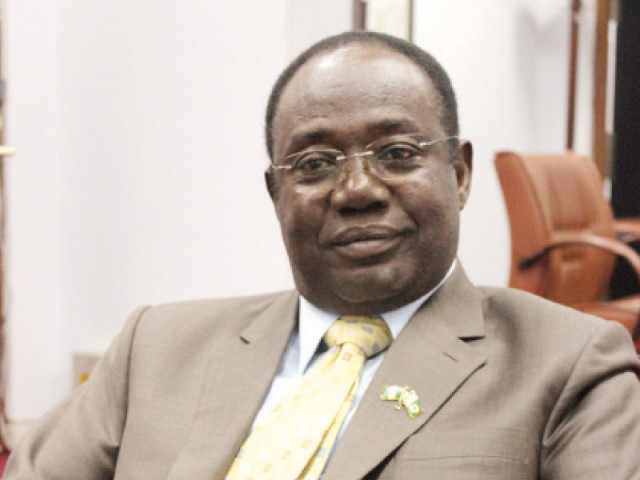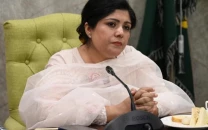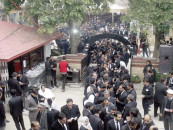Economic diplomacy: Dividend galore if trade potential realised, says Nigerian envoy
President’s expected visit is believed to bring about important bilateral agreements.

President’s expected visit is believed to bring about important bilateral agreements.
The past two years has witnessed a tremendous growth in bilateral economic relations between Pakistan and Nigeria as the volume of bilateral trade between the two countries has increased fivefold.
Much of the credit for this revival of trade relations goes to the High Commissioner of Nigeria, Dauda Danladi, who took up his post in Islamabad in 2012.
In an exclusive interview to The Express Tribune, the high commissioner discussed the future of bilateral relations and the potential for Pakistani companies to export to the oil-rich African nation.
“Pakistan and Nigeria have entered a new era of economic diplomacy,” Danladi said. “We have agreed that this April, Pakistani experts will be going to Nigeria to establish the Pakistan-Nigeria Business Council.”
The establishment of the council --- a step in the direction of doubling the trade volume again by 2015 --- is likely to be supported by a top-level meeting of the two governments in Nigeria soon after.
“Before the end of the second quarter of 2014, President Mamnoon Hussain is expected to lead a delegation to Nigeria,” said Danladi. “It would be the first time a Pakistani president will visit Nigeria ever-since diplomatic relations established between the two countries.”
Areas of cooperation
The president’s visit is believed to bring about important bilateral agreements.
“The visit will also re-establish the framework of cooperation, because agreements and memoranda of understanding (MoUs) will be signed in the areas of science, education, agriculture, direct air service and preferential trade.”
These latest efforts in revitalising relations appear to follow a campaign by the high commissioner to sensitise business communities in both countries about potential opportunities.
“We have been able to mobilise around 42 industrialists who visited Nigeria between August and September in 2013, covering seven of Nigeria’s 36 states,” the envoy said.
The mobilisation involved personal visits to the chambers of commerce and industry in all major Pakistani cities, Danladi said.
During these visits, the high commissioner said, he was accompanied by a crew from the Nigerian Television Authority. The news reports about Pakistani industries were aired in Nigeria and a similar documentation of Nigeria’s industry was shown to Pakistani business people, which created awareness about the business prospects, Danladi said.
The number surge
“As a result of these activities alone, we were able to increase the bilateral trade volume from $100 to $500 million,” he said.
Pakistan historically had a trade surplus in the bilateral trade volume, according to previous reports.
The key areas of trade include agriculture, pharmaceuticals and textiles to name a few. One company from Lahore got an order of around 100 tractors during the visit to Nigeria, Danladi said.
He said Pakistan’s business people can help introduce professional and technological innovation in the Nigerian industry.
“We are calling on Pakistani companies to come and establish rice processing industry in Nigeria,” he said. “We want to join hands with Pakistani firms to also resuscitate the dormant textile industry in Nigeria.”
Nigeria, which has the 10th largest oil and gas reserves in the world, is also interested in learning from Pakistan’s experience in dairy and poultry production, he said.
But the cooperation can extend beyond agriculture and industry to science and education, as well.
“If we are able to get the education and science agreement signed, it will open up the doors for exchange of visits, student exchange programmes, collaboration between universities and academia, and perhaps collaboration in research and development,” the high commissioner said.
Shared legacy
Pakistan and Nigeria, which are both members of the Organisation of the Islamic Cooperation (OIC) and the D-8, also have a history of defence cooperation. Both countries are also grappling with militancy problems -- notably the Tehrik-Taliban (TTP) in Pakistan and the Boko Haram in Nigeria.
Danladi said the two countries are trying to collaborate by sharing their experiences on counterterrorism, and through capacity-building and trainings, to “see how together we can reduce the menace of terrorism” which now requires an international approach.
The envoy said his appeal to the Muslim world is to “give peace a chance.”
“Violence historically has never achieved anything,” he said. “Let peace reign in Pakistan and in the region. Let there be global peace.”
Published in The Express Tribune, March 1st, 2014.



















COMMENTS
Comments are moderated and generally will be posted if they are on-topic and not abusive.
For more information, please see our Comments FAQ